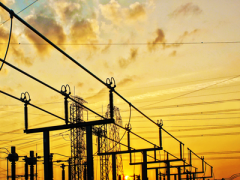Resource Efficient Europe: many synergies, notorious exceptions
In many cases, resource efficiency in one area also helps to mitigate problems in another. For example, energy efficiency also saves water, and sustainable yield improvements also lead to a more efficient use of agricultural land. This may help to safeguard terrestrial biodiversity, mitigate climate change, and improve food security, but in developing countries will lead to an increase in the use of phosphorus fertilisers.
Large-scale production of bio-energy to replace fossil fuels, such as oil and coal, is another exception. Although this would decrease net carbon dioxide emissions, it would also erode the potential for efficiency gains for other resources, such as phosphate and arable land.
EU Resource Efficiency Perspectives in a Global Context
These are some of the findings of a study by the PBL Netherlands Environmental Assessment Agency, EU Resource Efficiency Perspectives in a Global Context. The study, commissioned by the European Commission, serves as a knowledge base for European resource policy, including the study Roadmap towards a Resource Efficient Europe. For this study, researchers have estimated the worldwide effects, up to 2050, of resource efficiency for five distinct, vitally important resource themes: energy, land, phosphorus, fresh water and fish stocks. The study was presented as a report to the staff of various departments of the European Commission on 28 November in Brussels.
The successful application of resource-efficient technologies requires social, cultural and business sector adaptations. Examples are the acceptance of recycling phosphorus from urban sewage, substantial waste reductions in the food chain, and temporary, further reductions in marine fish catches. Coherent – often international – policy action in many fields will be required to foster such change, to manage rebound effects and to avoid an overly strong focus on short-term efficiency of marketed resources, which could jeopardise resilience, in the long term.
Without strong action on resource efficiency, pressures on the resources studied are projected to increase more and more as a result of population growth and global convergence of consumption habits. The consequences will be felt throughout the world, but mostly in the developing world; particularly in Southeast Asia and Africa.
Resource scarcity may concern physical depletion, but also increasing exploitation costs or geopolitical dependence. For these reasons, resource efficiency may take on many different forms. While policy recommendations will need to be based on a broad set resource-specific indicators, it may be necessary to also frame the concept in political-cultural terms: 'the European way of managing resources'.
Disclaimer
The EU Resource Efficiency Perspectives in a Global Context is published by PBL Netherlands Environmental Assessment Agency, under the authority of the European Union. The views expressed in this publication do not necessarily reflect those of the European Union.




